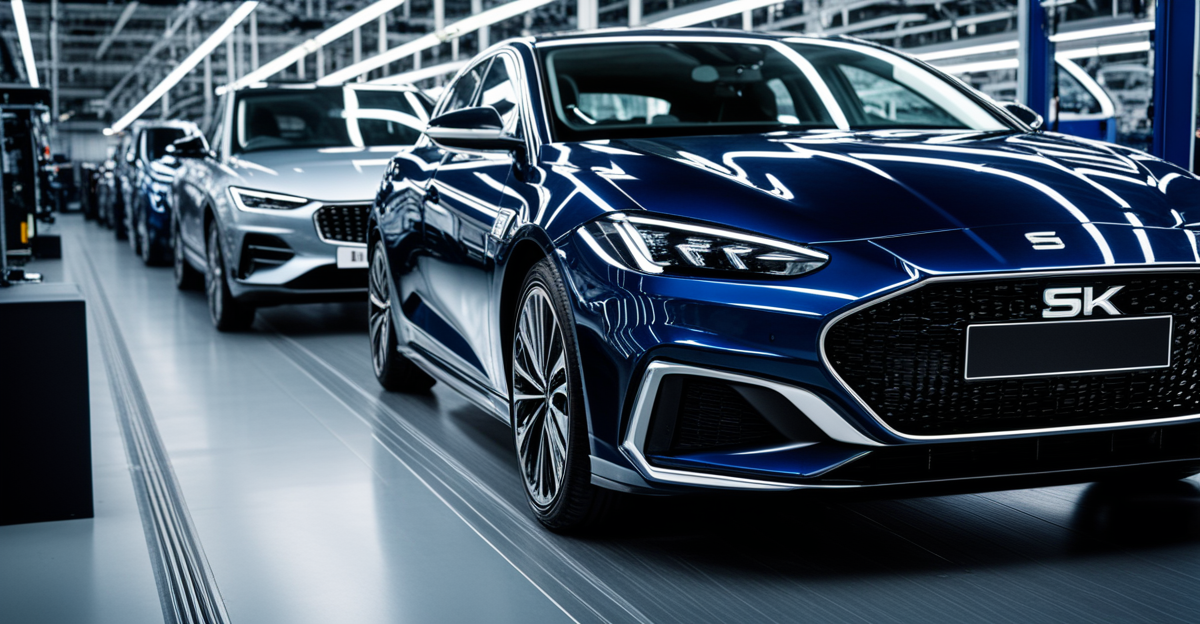Digital Transformation Initiatives in the UK Automotive Industry
Digital transformation in the UK automotive industry is driven by extensive digitalisation initiatives targeting production efficiency, customer experience, and supply chain management. Leading manufacturers such as Jaguar Land Rover and Bentley are integrating Industry 4.0 technologies, including IoT sensors and advanced analytics, aiming to streamline operations and reduce downtime. Suppliers are following suit by adopting digital platforms for real-time inventory tracking and predictive maintenance.
The objectives of these initiatives focus on enhancing overall productivity, improving vehicle quality, and fostering innovation. Collaborative efforts among manufacturers, suppliers, and technology firms have led to the creation of shared digital ecosystems. These ecosystems facilitate the exchange of data and resources, accelerating the adoption of cutting-edge technologies across the sector.
In parallel : What Are the Key Features Buyers Look for in UK Cars?
Joint ventures and partnerships help standardise digital tools and practices, promoting interoperability and scalability. For example, consortia in the UK are working on developing unified data standards, ensuring seamless integration across different manufacturers’ systems. Such cohesion is critical for the success of digital transformation in the UK automotive industry, supporting a competitive and future-proof sector.
Adoption of Emerging Technologies
The UK automotive industry is rapidly integrating AI in automotive and automation to revolutionise production and services. Manufacturers utilise artificial intelligence to optimise assembly lines, predicting equipment failures before they occur, reducing downtime and maintenance costs. Automation enhances precision and efficiency, with robotic systems performing repetitive tasks that improve consistency while freeing human workers for higher-value roles.
In the same genre : What is the role of AI in the UK automotive industry’s evolution?
Connected vehicles are another critical focus, incorporating sensors and IoT to enable real-time data exchange between cars and infrastructure. This connectivity supports enhanced safety features like collision avoidance and adaptive cruise control, as well as smart mobility solutions that ease traffic congestion and promote efficient route planning.
Electric mobility is expanding quickly in the UK, driven by government incentives and growing consumer acceptance. Automotive firms invest heavily in electric vehicle (EV) infrastructure, such as charging networks, to boost market share and support UK-wide EV adoption. These efforts demonstrate a commitment to sustainability and align with global emissions targets.
By combining automation, connected vehicles, and electric mobility, these digitalisation initiatives position the UK automotive sector at the forefront of technological advancement. The practical benefits encompass increased operational efficiency, improved safety, and reduced environmental impact—key factors shaping the industry’s future trajectory.
Strategic Responses and Industry Support
In the UK automotive industry, building robust digital capabilities is a core focus of current automotive strategy. Manufacturers and suppliers prioritise workforce development, recognising that skilled employees are essential to leveraging technologies like AI and automation effectively. Substantial investment in digital skills training ensures workers can operate advanced systems and contribute to innovation.
Government support significantly accelerates this transformation. Initiatives provide funding, infrastructure, and policy frameworks that encourage adoption of digitalisation initiatives. For example, targeted grants help firms integrate Industry 4.0 solutions or expand electric vehicle production. This strategic support aims to maintain the UK’s competitive edge in automotive innovation while fostering sustainable growth.
Collaboration between public agencies and private sector entities creates a foundation for shared knowledge and resource pooling. By promoting partnerships, government programs help overcome fragmentation within the supply chain, enabling smoother implementation of digital transformation initiatives. Together, these coordinated efforts address challenges and facilitate ongoing digital advancement throughout the UK automotive industry.
Examples of Innovation and Best Practice
Digital transformation in the UK automotive industry is highlighted by numerous case studies showcasing successful implementation of advanced technologies. Leading manufacturers like Jaguar Land Rover have pioneered AI in automotive applications for predictive maintenance, significantly reducing unplanned downtime. Bentley’s integration of automated quality control systems exemplifies how automotive innovation translates into enhanced product consistency.
These innovations often emerge from strong industry partnerships. Collaborative ventures between automotive firms and technology providers accelerate digitalisation initiatives, creating shared platforms for data analytics and IoT deployment. For instance, consortia focusing on connected vehicle technologies have tested real-world mobility solutions, improving traffic management and safety.
Notable pilot projects further demonstrate best practices. Trials of electric mobility infrastructures combined with automated logistics showcase the practical benefits of integrating emerging technologies. Such initiatives serve as blueprints for broader sector-wide digital adoption, reinforcing the UK’s position at the forefront of automotive innovation.
Through these successful projects and partnerships, digital transformation in the UK automotive sector is not just theoretical but actively shaping future practices, encouraging companies to embrace cutting-edge tools and methodologies continuously.
Challenges and Future Digital Trends
Digital transformation challenges in the UK automotive industry include integration complexities, legacy systems, and workforce adaptation. Many manufacturers struggle with aligning existing infrastructure to new digitalisation initiatives, slowing implementation. Additionally, the demand for skilled workers in AI and automation exceeds supply, creating talent gaps that hinder progress.
Security and data privacy also present obstacles. As connected vehicles and IoT increase data exchange, safeguarding sensitive information becomes a priority. Manufacturers must implement robust cybersecurity measures to protect intellectual property and customer data, adding layers of complexity to digital transformation efforts.
Looking ahead, future automotive trends highlight autonomous driving, enhanced connectivity, and AI-driven manufacturing. Industry experts project that these advances will drive efficiency, safety, and sustainability. The rise of 5G networks will accelerate connected vehicle capabilities, enabling real-time communication and intelligent traffic management.
Data-driven projections foresee increased digital maturity by 2030, with UK firms adopting scalable platforms and agile methodologies. Overcoming current challenges will depend on continued collaboration, investment in digital skills, and innovation-focused strategies. These trends underscore a transformative period, positioning the UK automotive industry to sustain global competitiveness in an evolving landscape.






